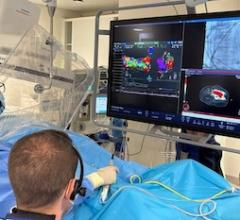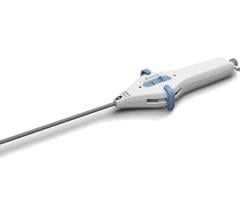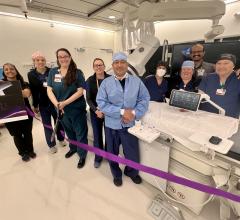
Infographic courtesy of StopAfib.org
November 3, 2015 — In recognition of World Stroke Day, the patient-focused organization StopAfib.org launched a diverse set of materials for engaging and empowering people living with atrial fibrillation (AF). The materials are intended to increase the ability of patients to be engaged in their own treatment and stroke prevention decisions.
The materials are the result of a year-long initiative by a committee of the Sign Against Stroke (SAS) Task Force comprised of five patient and professional advocacy organizations to create materials to be used globally. The committee is chaired by StopAfib.org, based in the United States. Committee members include Arrythmia Alliance Argentina (Argentina), Asian Pacific Society of Cardiology (Singapore), Associacao Bate, Bate Coracao (Portugal), and Fundacja Udaru Mozgu (Poland).
The idea originated at a global summit where member groups noted that the socioeconomic and personal burdens of AF-related stroke are high and devastating to individuals, yet many patients do not understand what atrial fibrillation is, what their stroke risk actually is and how they can prevent AF-related stroke. The task force also expressed a shared belief that many patients do not understand that it is their right to ask questions of their doctor and to participate in their treatment decisions based on the best available evidence.
The task force agreed to address these concerns through the development of a set of educational materials that could be readily translated into other languages and adapted to different cultures. They started gathering input from regional patient group summits in late 2014.
The materials consist of five downloadable documents, two infographics and an animated video.
The five downloadable documents each focus on a specific topic:
- About AF: Interpreting your diagnosis and treatment options;
- Lower Stroke Risks: Evidence and information to help people with AF make decisions to minimize stroke risk;
- Questions to ask about AF: Questions for patients to ask their healthcare providers and encourage a two-way dialogue;
- Getting the Best AF Care: Guidance on how patients can communicate with physicians and advocate for their own care; and
- Help from Family and Friends: Ways family carers can provide support for loved ones.
The video is three minutes long and features several messages about the dangers of AF and the importance of knowing your risks and developing a treatment plan with your doctor. The video can be made into eight mini videos of 20 to 30 seconds each for wider use and dissemination across a variety of channels.
Each of the two infographics offers facts and figures designed to enhance awareness of AF and the resulting stroke risk.
"Many people with AF are not aware of their increased risk of stroke," said Mellanie True Hills, CEO of StopAfib.org. "These materials are designed to educate patients about managing their risk and to mobilize them to become active partners in their care."
The materials are being launched globally in multiple languages, with a focus on Europe, Asia, and Latin America. They will be shared at an upcoming patient group symposium in Warsaw, Poland in November, where as many as 50 organizations from throughout Europe will be provided the materials with tools to facilitate their translation and localization.
For more information: www.stopafib.org


 January 29, 2026
January 29, 2026 









